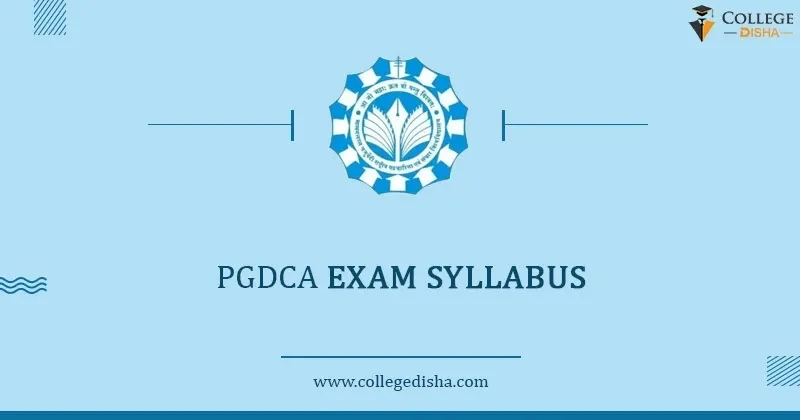PGDCA Syllabus 2025
PGDCA Syllabus: Post Graduate Diploma in Computer Applications (PGDCA) Course is a 1-year course that is bifurcated into two trimesters.
➥ The PGDCA Exam Syllabus is prescribed by the concerned authority of various colleges or universities on their official website. The candidates must visit the website of their respective colleges to download their exam syllabus to be able to give various papers of the PGDCA Course more confidently.
➥ PGDCA Exam Syllabus is prepared to provide the right direction to the candidates in terms of their preparation for various exams under this course.
➥ Every college and university may have their different PGDCA Exam Syllabus and the students should stick to the syllabus prescribed by their college or university only.
The candidates can find a tentative syllabus of various papers taught in the PGDCA Course but they should keep in mind that PGDCA Exam Syllabus may vary from college to college.


PGDCA Exam Links
|
|
Tentative PGDCA Exam Syllabus for mainly 4 subjects is given below:
- Problem Solving using C
|
Topics |
Sub-Topics |
|
Problem Solving Approach |
|
|
Basic Concepts of C |
|
|
Functions |
|
|
Arrays, Strings and Pointers |
|
|
Structure, Union, Enumeration, and Files |
|
- Web Technology and Internet
|
Topics |
Sub-Topics |
|
Internet Principals |
|
|
Introduction to HTML |
|
|
Frames and Forms |
|
|
Elements of Javascript |
|
|
Server-Side Scripts with JSP |
|
|
JSP with JDBC |
|
- Computer Networks:
|
Topics |
Sub-Topics |
|
Introduction to Computer Networks |
|
|
Fundamentals of Data Communication |
|
|
Fundamental of Networks |
|
|
Layered Architectures |
|
|
LAN Technologies |
|
- Database Management Systems
|
Topics |
Sub-Topics |
|
Database |
|
|
Database Models |
|
|
Relational Database Models |
|
|
Functional Dependencies and Normalization |
|
|
Oracle and Structured Query Languages (SQL) |
|
✍ Note: This PGDCA Exam Syllabus is given just to give an idea of the topics under these 4 subjects but this is not an exhaustive list. Different colleges and universities may add or delete the topics which are included in the subjects as per their discretion.
Importance of PGDCA Syllabus 2025:
PGDCA syllabus is an important asset that sets the standard of what is expected to come in the examination. It prescribes what topics and concepts will appear in the examination:
- It established a road map for the applicants by stating the objectives and goals to be achieved in order to crack the PGDCA Examination.
- It includes useful information that will facilitate the success of an applicant.
- It provides the exam structure, goals, and learning outcomes
- PGDCA syllabus describes the topics and concepts which should be covered while preparing for the examination.
- The PGDCA Exam Syllabus also maintains the wastage and allotment of different units and chapters so a candidate can know which strategy to create in order to crack the examination according to the preparation of chapters with high and low weightage.
- Having a clear understanding of the PGDCA Paper Syllabus and weightage involved in the various topics and sections will help a candidate to decide how much time he should invest in that particular topic of the section.
- Generally, PGDCA Exam is designed as per the syllabus prescribed by the official authority. So preparing according to the topics and instructions mentioned in the syllabus will obviously help a candidate to crack the examination.
Trending Searches in Exams
Copyright @2024.www.collegedisha.com. All rights reserved

